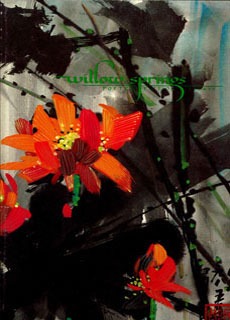Homage to Faiz Ahmed Faiz by Agha Shahid Ali
Homage to Faiz Ahmed Faiz (d. 20 November 1984)
“You are welcome to make your
adaptations of my poems.”
1
You wrote this from Beirut, two years before
the Sabra-Shatila massacres. That
city’s refugee-air was open, torn
by jets and the voices of reporters. As
always you were witness to “rains of stones,”
though you were away from Pakistan, from
the laws of home which said that the hands of
thieves would be surgically amputated.
But the subcontinent always spoke to
you: in Ghalib’s Urdu, and sometimes through
the old masters who sang of twilight but
didn’t live, like Ghalib, to see the wind
rip the collars of the dawn: the summer
of 1857, the trees of
Delhi became scaffolds: 30,000
men were hanged. Wherever you were, Faiz, that
language spoke to you; and when you heard it,
you were alone-in Tunis, Beirut,
London, or Moscow. Those poets’ laments
concealed, as yours revealed, the sorrows of
a broken time. You knew Ghalib was right:
blood musn’t merely follow routine, musn’t
just flow as the veins’ uninterrupted
river. Sometimes it must flood the eyes,
surprise them by being clear as water.
2
I didn’t listen when my father
recited your poems to us by
heart. What could it mean to a boy
that you had redefined the cruel
beloved, that figure who already
was Friend, Woman, God? In your hands
she was Revolution. You gave
her silver hands, her lips were red.
Impoverished lovers waited all
night every night, but she
remained only a glimpse behind
light. When I learned of her I was
no longer a boy, and Urdu
a silhouette traced by
the voices of singers, by
Begum Akhtar who wove your couplets
into ragas: both language and music
were sharpened. I listened:
and you became, like memory,
necessary. Dast-e-Saba,
I said to myself. And quietly
the wind opened its palms: I read
there of the night: the secrets
of lovers, the secrets of prisons.
3
When you permitted my hands to
turn to stone, as must happen to a translator’s
hands, I thought of you writing Zindan-Nama
on prison-walls, on cigarette-packages,
on torn envelopes. Your lines were measured
so carefully to become in our veins
the blood of prisoners. In the free verse
of another language I imprisoned
each line-but I touched my own exile.
This hush, while your ghazals lay in my palms,
was accurate, as is this hush which falls
at news of your death over Pakistan
and India and over all of us no
longer there to whom you spoke in Urdu.
Twenty days before your death you finally
wrote, this time from Lahore, that after the sack
of Beirut you had no address… I
had gone from poem to poem, and found
you once terribly alone, speaking
to yourself: “Bolt your doors, Sad heart! Put out
the candles, break all cups of wine. No one,
now no one will ever return.” But you
still waited, Faiz, for that God, that Woman,
that Friend, that Revolution, to come at
last. And because you waited, I
listen as you pass with some song,
A memory of musk, the rebel face of hope.


